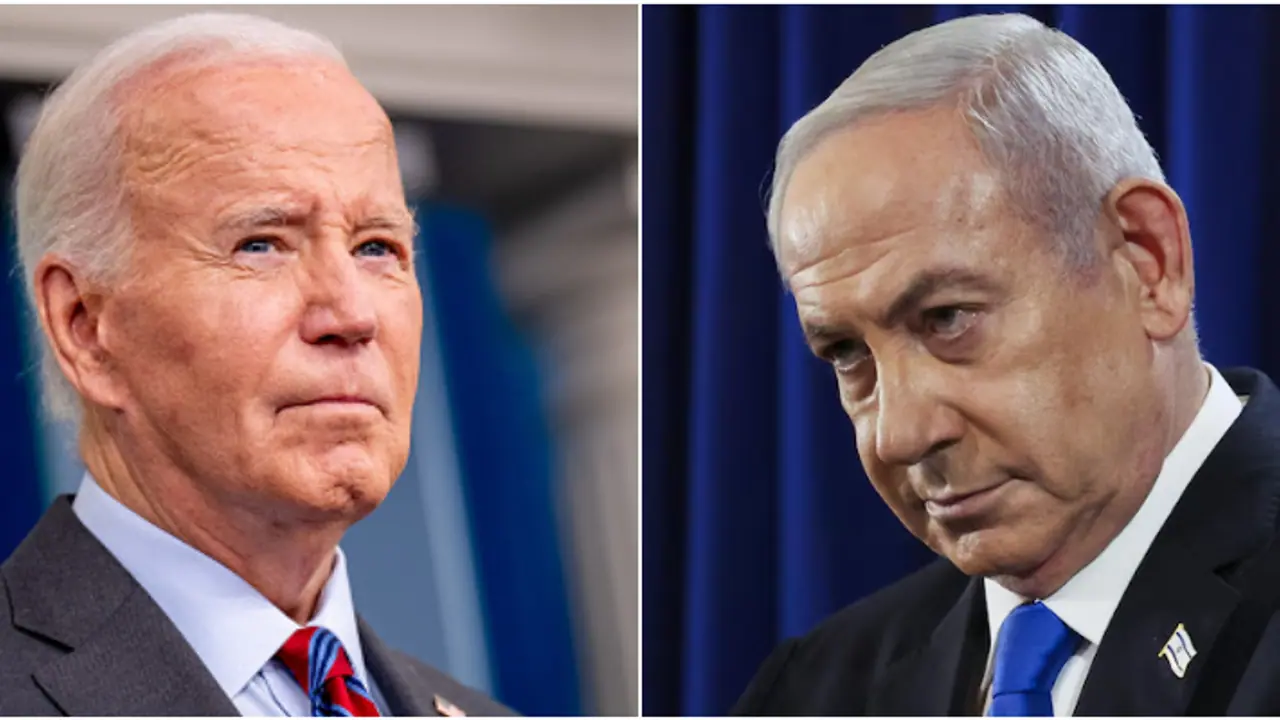The Israel-Hezbollah ceasefire agreement, brokered by the US, involves a 60-day halt in hostilities, effective from Wednesday (Nov 27). The ceasefire aims to provide a path toward long-term stability.
In a major development amid the ongoing Middle East crisis, US President Joe Biden announced on Tuesday that Israel and Lebanon have reached a ceasefire agreement, effectively ending the conflict between Israel and Hezbollah. Addressing the nation from the White House Rose Garden, Biden outlined the terms of the deal, which seeks a permanent halt to hostilities and aims to pave the way for stability in the region.

The agreement stipulates a 60-day ceasefire, during which Israeli forces will pull back, and Hezbollah will withdraw from southern Lebanon. However, Israel has maintained its right to take action if Hezbollah breaches the terms of the deal, a provision that has been opposed by Lebanon.
The ongoing conflict has forced more than 1.2 million Lebanese and 50,000 Israelis to flee their homes. Israel's extensive bombing campaign has led to over 3,700 deaths, predominantly civilians, according to Lebanese officials. On the Israeli side, more than 130 individuals have been reported dead.
The key terms of the ceasefire deal between Israel and Hezbollah include:
1. Troop Withdrawals: Both Israeli and Hezbollah forces will retreat from areas along the border.
2. Deployment of Peacekeepers: Thousands of Lebanese soldiers and UN peacekeepers will be stationed south of the Litani River to ensure security and monitor the situation.
3. International Oversight: An international monitoring group, led by the United States, will oversee compliance with the ceasefire terms.
4. Right to Act: Israel retains the right to take military action if Hezbollah violates the agreement. This provision, however, has been opposed by Lebanese officials.
President Biden emphasized that the agreement is designed to bring a lasting end to hostilities and pave the way for stability in the region.
How do the US and UK perceive the deal?
US President Joe Biden and UK Prime Minister Keir Starmer have both praised the ceasefire deal, with Biden calling it "good news" and Starmer noting that it was "long overdue."
"I just spoke with the prime ministers of Israel and Lebanon and I'm pleased to announce that their governments have accepted the United States' proposal to end the devastating conflict between Israel and Hezbollah," Biden said.
"We must see immediate progress towards a ceasefire deal in Gaza, the release of all hostages and the removal of restrictions on desperately needed humanitarian aid," Starmer said in a statement.
A Hezbollah leader stated that the group's support for the ceasefire deal is contingent on assurances that Israel will not resume its attacks.
“After reviewing the agreement signed by the enemy government, we will see if there is a match between what we stated and what was agreed upon by the Lebanese officials,” Mahmoud Qamati, deputy chair of Hezbollah’s political council, told Al Jazeera.
“We want an end to the aggression, of course, but not at the expense of the sovereignty of the state” of Lebanon, he added.
